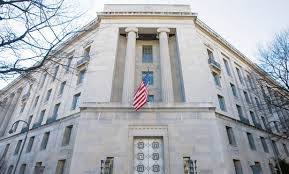Return of the Jedi (DOJ): The Vimpelcom Enforcement Action (Part I of II)
 Welcome back to the Department of Justice and FCPA enforcement. After a lengthy hiatus, DOJ returned to the FCPA enforcement scene with a demonstration of its full capability, assuming certain individuals are prosecuted criminally out of the case. (I know technically they reappeared with the PTC non-prosecution agreement but give me a little literary license).
Welcome back to the Department of Justice and FCPA enforcement. After a lengthy hiatus, DOJ returned to the FCPA enforcement scene with a demonstration of its full capability, assuming certain individuals are prosecuted criminally out of the case. (I know technically they reappeared with the PTC non-prosecution agreement but give me a little literary license).
Overview
In a top-10 worthy enforcement action, DOJ and the SEC settled with Vimpelcom for $795 million and sought forfeiture of another $550 million for funds held in Swiss bank accounts as the proceeds of numerous bribery payments. The Justice Department, along with the Dutch prosecutors, collected a total of $460 million in penalties, and agreed to split the fine in half — $230 million each. The SEC and the Netherlands securities agency split a disgorgement penalty of $375 million.
Vimpelcom entered into a three-year DPA, including appointment of a monitor, and Unitel, a subsidiary plead guilty to a single count of conspiracy to violate the FCPA.
The facts underlying the enforcement action establish a systematic, top-to-bottom conspiracy involving the highest levels of Vimpelcom executives. At the same time, Vimpelcom’s board of directors arguably failed to exercise proper oversight and inquiry even after identifying significant FCPA risks and demanding legal analysis of such facts.
If DOJ’s Yates memorandum means anything, DOJ can only maintain its credibility by prosecuting Vimpelcom’s senior executives and other appropriate officials. DOJ cannot permit this case to go forward, like it did in the Avon case, and allow senior executives who engage in criminal conduct to escape criminal prosecution. It is curious that DOJ announced the corporate resolutions without any mention of individual prosecutions. Time will tell but this is a significant test of DOJ’s commitment to its Yates memorandum.
Bribery Scheme
The bribery facts are instructive. Vimpelcom paid $114 million in bribes to a government official, the daughter of the Uzbek President, over a six-year period. The President’s daughter is notoriously corrupt and flaunted her wealth earned from not only Vimpelcom but other bribe payors.
The scheme itself involved her ownership in a shell company and in a second, smaller telecomm company in Uzbekistan. She was able to exert influence over the Uzbek telecomm agency to carry out her bribery scheme.
Vimpelcom executives knew she was the beneficial owner of the shell company and funneled payments to the shell company knowing that she was the beneficiary.
The $114 million in bribe payments largely consisted of:
- 5 million bribe paid to the foreign official’s shell company as a presumed local partner;
- $25 million bribe with the foreign official’s shell company to obtain a license for 4G frequencies;
- $32 million in consulting payments for sham services to the foreign official’s shell company;
- $20 million in payments through Uzbek resellers to the foreign official’s shell company.
Additionally, Vimpelcom paid $60 million for Unitel’s competitor, a company in which the foreign official held an indirect ownership interest.
Questions and Lessons Learned
First, a profound grasp of the obvious – Vimpelcom had no desire nor commitment to ensure implementation of an effective anti-corruption compliance program. This was a systematic and complete breakdown in controls.
It is surprising to say the least that some of the conduct stretched into 2011 to 2013, when anti-corruption compliance has reached the forefront of corporate risks and attention.
The overriding question, as always, was where was Vimpelcom’s board of directors. Vimpelcom’s finance Committee and then its Board identified important FCPA questions and then failed to properly supervise. DOJ’s explanation for the board’s failure is that senior executives and management withheld important information from the board that caused the board to approve the transactions without access to accurate information.
 Before acquiring the small competitor, and given the surrounding explanations, the board wanted comfort on the FCPA issue and asked for an opinion from outside counsel. Senior executives withheld important information from senior counsel, including the beneficial owners of the competitor, which would have revealed the foreign official’s ownership interest. On its face, the board and outside counsel failed to obtain a basic and critical fact – who owned the competitor, and if the name of the shell company was provided – who opened the shell company.
Before acquiring the small competitor, and given the surrounding explanations, the board wanted comfort on the FCPA issue and asked for an opinion from outside counsel. Senior executives withheld important information from senior counsel, including the beneficial owners of the competitor, which would have revealed the foreign official’s ownership interest. On its face, the board and outside counsel failed to obtain a basic and critical fact – who owned the competitor, and if the name of the shell company was provided – who opened the shell company.
Vimpelcom’s board (and outside counsel) may have not committed a crime, as made clear by DOJ in its description of the facts, but it certainly failed to exercise proper oversight and meet basic legal standards for an opinion letter on such a transaction.
While the senior executives who engaged in this misconduct, and who are at the center of the bribery scheme, will most certainly face criminal prosecution, the true tale of the Vimpelcom enforcement action is the failure of the Vimpelcom board to act, probe and uncover a bribery scheme at its earliest phase.















